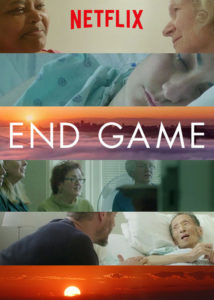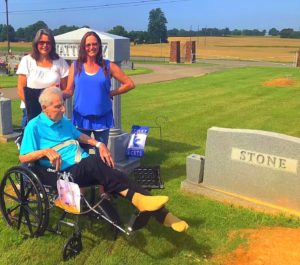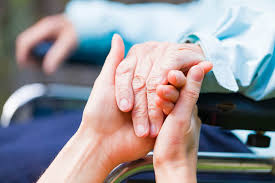“WHY NOT HOSPICE? A Reluctance to Refer” is a short educational material by Barbara Karnes, RN. Let’s take a dive into what this piece says, means, and hit on some common reasons why people don’t refer early enough (or at all).
While there are many causes of death, there are only 2 ways people die- fast or gradual. Fast deaths are what you often think of, car accidents, gun shots, and other quick deaths. Gradual deaths are those which have a process to it- think cancer, COPD, AIDS, heart failure, kidney failure, and other serious illnesses. Most gradual deaths occur due to old age, disease, or a combination of both. With diseases, the gradual death process may take weeks, months, or years. And the old age process takes years.
Have you ever thought about the information in the above paragraph? Have you thought that death can come to you quickly or gradually? Yet every person will be faced with death at some point in their lives- death of family members, friends, coworkers, and their own. Most people don’t like to think about death or even want to think about it. Even though only two things are guaranteed in our lives- you are born and you will one day die. Only when death happens close to us or when diagnosed with an illness do we begin to think about the possibility of dying.
So many agencies are very reluctant to recommend hospice, or even palliative care to their patients. But why? Trained hospice and palliative care clinicians can make the gradual death process smooth, beautiful, peaceful, and preserve dignity and independence for the patient and family. However, physicians and other healthcare providers, outside of the realm of hospice/palliative providers, are trained to cure and do all things necessary in order to achieve a cure. So, some physicians and providers can seen a hospice or palliative referral as a failure or are just unaware of the benefits of hospice and palliative care. It is perfectly okay to ask your provider for a hospice or palliative care referral.
If any of the hospice eligibility guidelines or palliative eligibility guidelines are present, make a referral to St. Anthony’s Hospice or Palliative Care. In short, Barbara Karnes, RN says:
Three things I look for to tell me if it is time for Hospice are: 1. the patient’s condition is deteriorating in spite of the treatment that is being given. 2. You look at the person and say to yourself (and we have all done this but not wanted to admit it) this person is not going to be here next year at this time.. 3. The family and significant others are having difficulty coping with the seriousness of their loved one’s condition. (Karnes Educational Piece)
A hospice referral is a win for everyone. If you refer to hospice and a patient/loved one is not yet eligible, he/she can enroll in the St. Anthony’s Palliative Care program and be referred to hospice care when appropriate. If you refer to hospice and a patient/loved one is eligible, all of the benefits of St. Anthony’s Hospice Care begins to kick in! These benefits include: visits from your hospice interdisciplinary team, control in your surroundings, access to the Lucy Smith King Care Center for respite, residential, or general inpatient care, expert pain and symptom management, help with advance directives and funeral planning, and so much more.
Sometimes patients can “graduate” from hospice care. This means the patient actually gets better while having their pain and symptoms expertly managed and no longer qualify for hospice care. These patients can be backed into St. Anthony’s Palliative Care program so we can still follow up on them while they are seeking curative treatments.
Many people don’t get referred to hospice care early enough to reap all of the benefits. Some reasons people are hesitant to be referred are because they don’t know the truth about hospice and only believe the myths.
Hospice Myths DEBUNKED
Myth: Families/patients must wait for their physician to suggest hospice care.
Fact: St. Anthony’s Hospice encourages all people to be advocates and explore all their healthcare choices. Anyone can call our office to refer a patient at (270) 826- 2326. We have a referral specialist standing by to answer all your questions and contact your physician for the referral orders, if appropriate.
Myth: Hospice should be called only in the last moments of life.
Fact: The earlier hospice is used, the more benefits patients and families get from the program! Pain and symptom management is more effective when delivered earlier in the disease process. Our number one complaint is that families wish they called St. Anthony’s sooner!
Myth: Hospice is only for the dying patient.
Fact: St. Anthony’s Hospice focuses on the grieving family as much as the patient. We have a team of professionals, including chaplains and social workers, who help with the bereavement process and a variety of other services that benefit the patient’s loved ones before and after their passing.
Myth: My doctor will no longer be my doctor if I become a hospice patient.
Fact: If he/she is willing, your doctor will remain your attending and will become part of the St. Anthony’s Hospice team in caring for you. Our St. Anthony’s staff physicians can also provide care if your doctor is unable to do so.
Myth: Hospice is only for cancer patients.
Fact: Any patient with an end-stage diagnosis can benefit from hospice. These examples include, but are not limited to: HIV/AIDS, end-stage kidney disease, congestive heart failure (CHF), Alzheimer’s/Dementia, cirrhosis, stroke/CVA, chronic obstructive pulmonary disease (COPD), septicemia (sepsis), and others.
Myth: Hospice is expensive.
Fact: Hospice is a benefit under Medicare part A; some private insurances and Medicaid will also cover services. In addition, durable medical equipment, disposable medical equipment, and prescriptions related to the life-limiting condition are covered under these benefits, easing the financial burden on the patients and their families. No person is turned away from St. Anthony’s Hospice due to inability to pay.
Myth: Hospice care is only provided in the patient’s house.
Fact: While many patients who live alone, or with family, receive care in their homes, hospice services are available wherever the patient calls “home.” This means services can be provided in the patient’s house, a nursing home, or assisted living facility. In addition, we also provide services at the Lucy Smith King Care Center, our hospice hospital.
Myth: Hospice is about dying.
Fact: Hospice is about quality of life! When pain and symptoms are managed properly, patients make the most of the time they have left. They are able to spend time with friends, family, and pets in the comfort of their own home while being in control of the care they are receiving. Choosing hospice does not mean the patient is giving up hope or that death is coming soon. Patients often live longer under hospice care since pain and symptoms are under control.
Myth: All hospices are the same.
Fact: While the federal regulations governing hospice programs require the same standard services, that does not mean they are all the same. St. Anthony’s Hospice has been serving the residents of Henderson, Union, and Webster counties since 1982. In 2016, we began our Palliative Care program for those who seek pain and symptom control, while still seeking curative treatments.
Myth: Hospice means I’m going to die soon.
Fact: Many studies have shown the exact opposite! With your symptoms under expert management, studies have shown you can live longer with hospice care (if you are enrolled early enough). Hospice does not hasten death nor does it prolong life. These studies have proven hospice effective in improving quality of life which can sometimes improve quantity of life, compared to those with the same illness but not receiving hospice care.
Myth: Once enrolled in hospice, you cannot get out except when you die.
Fact: You can decide to leave hospice care at any time to pursue aggressive treatments. On the other hand, we have patients who get better with the symptom management and “graduate” from hospice! If you decide to re-enroll in hospice care and still qualify, you can always come back.
Myth: Hospice takes away all medications.
Fact: Hospice care is all about managing symptoms, which we do with medications. This does not mean that hospice care over-medicates patients or removes all medicines. In some cases, we do de-prescribe to reduce the amount of medication the patient will be taking. This is used to reduce medicines with heavy side effects or ones that are simply not benefitting the patient or increasing their quality of life.
If you, a loved one, or a patient is in need of hospice or palliative care, please call St. Anthony’s Hospice or Palliative Care at (270) 826-2326 or make an online referral.
Source found here.














